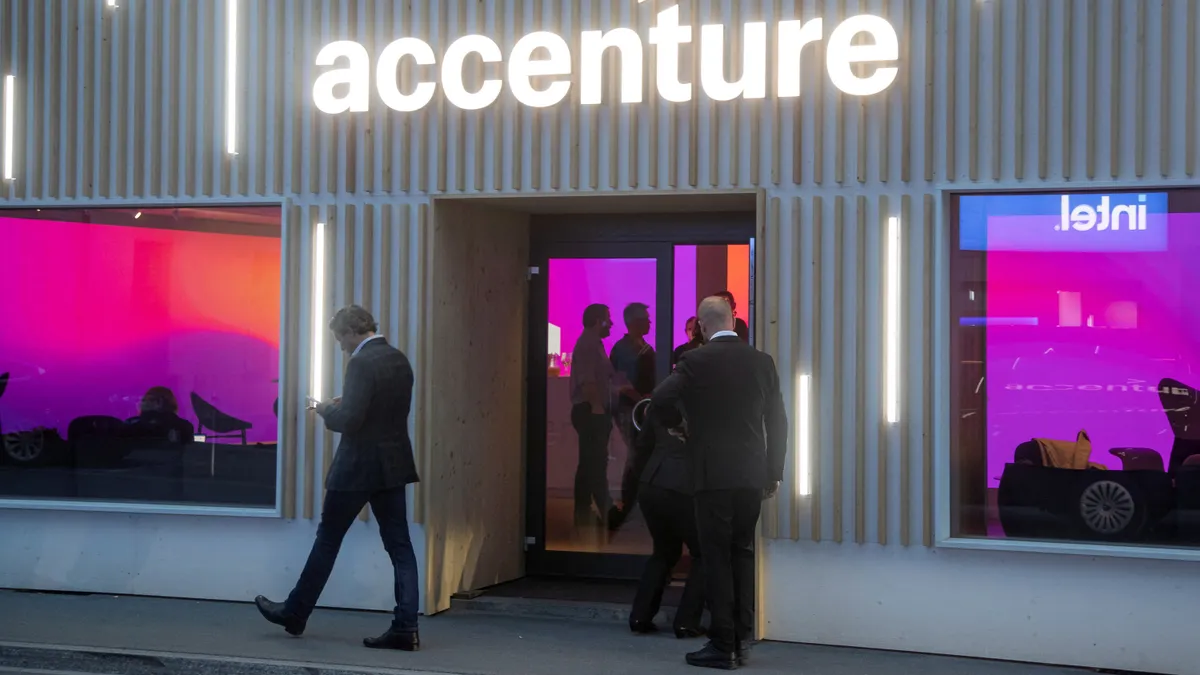Dive Brief:
- Accenture will invest $3 billion over three years in its data and AI practice to help clients become more efficient and resilient in their use of AI, the company announced Tuesday.
- In addition to the investment, Accenture plans to double its AI talent to reach 80,000 AI-skilled employees through hiring, acquisitions and training. The company did not respond to a request for comment or provide a timeline for acquiring the new talent.
- The move comes just months after the professional services company announced layoffs impacting 19,000 people, or around 2.5% of its workforce. At the time, Accenture said the cuts would occur over the next 18 months. The company planned to spend $1.5 billion in personnel and office consolidation costs related to cuts in its 2023 and 2024 fiscal years.
Dive Insight:
Accenture’s investment in AI is part of a trend: large organizations are putting their money where their mouth is.
PwC laid out a three-year AI roadmap focusing on generative AI in April, with an accompanying $1 billion investment to bolster the company’s offerings. Building on its existing partnership with Microsoft, the company plans to use OpenAI’s technology and Microsoft’s Azure OpenAI Service.
Tech giant Meta Platforms said it plans to ramp up hiring to support its AI and infrastructure areas in its earnings call in April. That was after Meta announced a series of layoffs impacting more than 20,000 workers amid a hiring freeze.
Salesforce, AWS, Google, Zoom and Microsoft have all invested internally and externally through funds or accelerators to advance the ethical use of AI and bolster the AI start-up ecosystem.
Without this industrywide push to accelerate generative AI, many businesses might have steered away from adoption due to the risks the tech brings and the demands to support data-heavy workloads.
IT leaders feel the pressure to keep pace. Nearly one-third of senior IT executives say keeping up with advances in technology, such as AI, is a major challenge, according to a Work Innovation Lab report published Monday.
Even as pressure mounts, organizations have to stick to best practices regarding data hygiene, data privacy and follow existing regulatory standards. Generative AI has the potential to bring value across departments, but without proper guardrails, even a seemingly small use case can go awry.
















